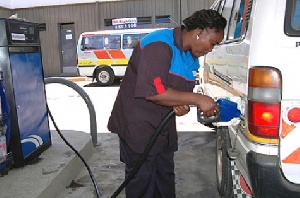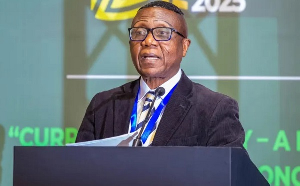Nigeria's fuel wholesalers say they have reached a deal with the government that should soon see the end of the crippling fuel crisis.
The agreement was reached after talks with the finance minister, Danladi Fasali from the Independent Petroleum Marketers Association told the BBC.
The wholesalers had stopped distributing fuel after alleging the government owed them $1bn (£625m).
The shortage has had an impact on the country's aviation and banking sectors.
The party of President-elect Muhammadu Buhari, who is due to take office on Friday, had accused the outgoing government of "sabotage" for failing to deal with the crisis.
At the heart of the shortage was a row over the payment to wholesalers of the difference between the subsidised pump price and the international market price.
The wholesalers said they were waiting for a $1bn payout from the government before they released more fuel.
But now the marketers association has told its members to start transporting fuel from the depots in the commercial capital, Lagos, and fuel stations have been instructed to reopen, Mr Fasali told the BBC Hausa Service.
A committee will now be set up to verify the $1bn figure and then pay the outstanding money.
The government has not yet confirmed the details.
Most Nigerian businesses and homes rely on diesel-powered generators because of the poor electricity infrastructure, and the shortage meant that Africa's biggest economy was slowly grinding to halt, says the BBC's Will Ross in Lagos.
Some of the country's leading banks had shortened the branch opening hours
Three of the country's mobile phone companies, MTN, Airtel and Etisalat, warned that the fuel scarcity could affect their services as they were finding it difficult to supply diesel to the base stations.
Many domestic flights had been cancelled and some international flights were landing in neighbouring countries to refuel.
Traffic on the roads was also reduced as many fuel stations stopped selling petrol and there are long queues at places where petrol was available.
It is not clear how quickly the fuel will now reach the petrol stations and queues are likely to remain for the next day or two, our correspondent says.
General News of Monday, 25 May 2015
Source: BBC













